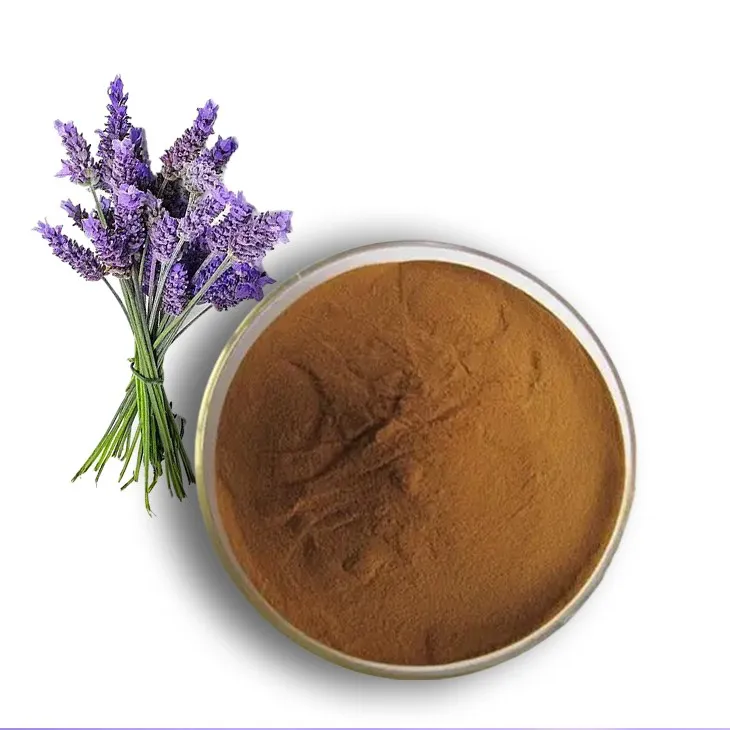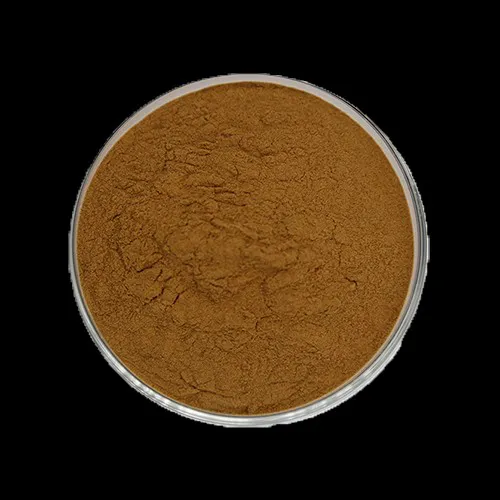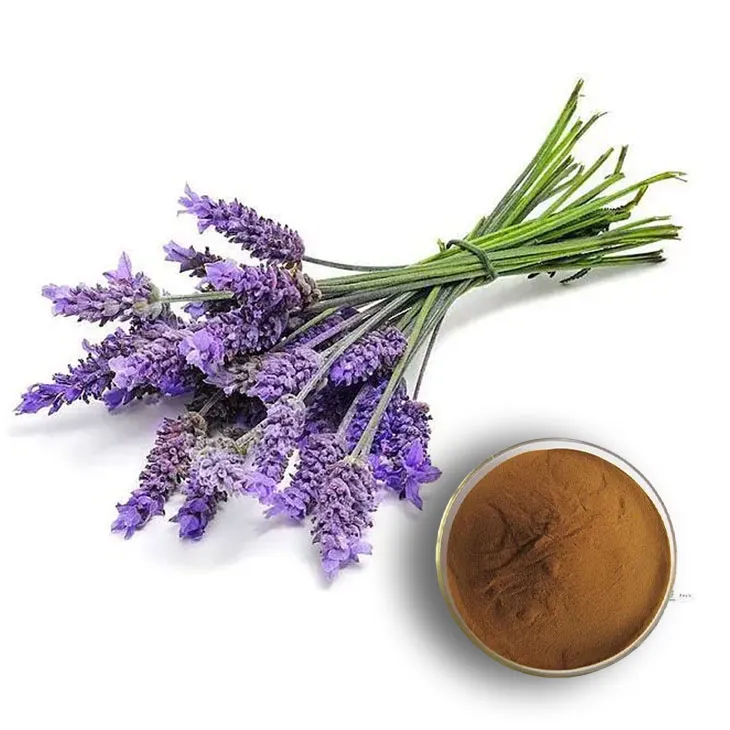- 0086-571-85302990
- sales@greenskybio.com
Five Effects of Lavender Extract + Dosage, Side Effects
2024-11-12

1. Introduction
Lavender, a plant known for its beautiful purple flowers and sweet fragrance, has been used for centuries in various cultures for its therapeutic properties. Lavender Extract, derived from the lavender plant, is a concentrated form that contains many of the plant's beneficial compounds. In this comprehensive guide, we will explore five amazing effects of Lavender Extract, discuss the appropriate dosage, and also be aware of possible side effects.

2. Five Effects of Lavender Extract
2.1 Stress and Anxiety Reduction
Lavender extract has long been recognized for its calming effects on the nervous system. It contains compounds such as linalool and linalyl acetate which interact with neurotransmitters in the brain. When inhaled or applied topically, it can help to reduce stress and anxiety levels. For example, studies have shown that people exposed to the scent of lavender in a diffuser reported feeling more relaxed and less anxious. It can also be beneficial for those with mild to moderate anxiety disorders, helping them to manage their symptoms more effectively.
2.2 Sleep Improvement
One of the most well - known effects of lavender extract is its ability to improve sleep quality. The relaxing properties of lavender can help to soothe the mind and body, making it easier to fall asleep and stay asleep. It can be used in a variety of ways to promote better sleep. For instance, adding a few drops of lavender extract to a warm bath before bedtime can create a relaxing environment. Lavender - scented pillows or sachets placed near the bed can also have a positive impact on sleep. Research has indicated that individuals who use lavender products in their bedtime routine often experience less insomnia and more restful sleep.
2.3 Skin Health
Lavender extract has several properties that are beneficial for skin health. It has antimicrobial and anti - inflammatory properties. These qualities make it useful for treating various skin conditions. For example, it can be applied topically to soothe minor burns, cuts, and insect bites. The anti - inflammatory action helps to reduce redness and swelling, while the antimicrobial properties prevent infection. Additionally, lavender extract can be beneficial for those with acne - prone skin as it helps to regulate sebum production and can reduce the growth of acne - causing bacteria.
2.4 Pain Relief
Another effect of lavender extract is its potential for pain relief. It can be used to relieve minor aches and pains, such as headaches or muscle soreness. The analgesic properties of lavender are thought to be related to its anti - inflammatory and relaxing effects. When used in combination with other natural remedies or massage oils, lavender extract can enhance the overall pain - relieving effect. For example, a lavender - infused massage oil can be used to massage sore muscles, providing both relaxation and pain relief.
2.5 Digestive Aid
Lavender extract may also play a role in improving digestive health. It has been used traditionally to relieve digestive problems such as indigestion, bloating, and abdominal cramps. The calming effect of lavender on the nervous system can also have an indirect impact on the digestive system. When a person is stressed, it can affect their digestion, and by reducing stress, lavender can help to normalize digestive functions. It can be consumed as a tea or taken in supplement form to support digestive health.

3. Dosage of Lavender Extract
The appropriate dosage of lavender extract can vary depending on the form of the extract (e.g., essential oil, tincture, or supplement) and the intended use.
3.1 Inhalation
When using lavender essential oil in a diffuser for aromatherapy purposes, typically 3 - 5 drops of the oil are sufficient for a small to medium - sized room. If using a personal inhaler, 1 - 2 drops on a cotton ball or inhaler pad can be inhaled as needed for stress relief or relaxation.
3.2 Topical Application
For topical application, it is important to dilute lavender essential oil before applying it to the skin. A general dilution ratio is 1 - 2% for most applications. This means adding 1 - 2 drops of lavender essential oil to 1 teaspoon (5 ml) of a carrier oil such as coconut oil or jojoba oil. For treating skin conditions, a small amount of this diluted mixture can be applied to the affected area 2 - 3 times a day.
3.3 Oral Consumption
If taking lavender extract in supplement form, it is crucial to follow the manufacturer's instructions. As a general guideline, the typical dosage for a lavender supplement may range from 80 - 160 mg per day, but this can vary. When making lavender tea, 1 - 2 teaspoons of dried lavender flowers or a few drops of lavender tincture can be added to a cup of hot water and consumed up to 3 times a day.

4. Side Effects of Lavender Extract
While lavender extract is generally considered safe for most people, there are some possible side effects to be aware of.
4.1 Skin Irritation
Although lavender has skin - soothing properties, undiluted lavender essential oil can cause skin irritation in some individuals. This is why it is important to always dilute the essential oil before topical application. People with sensitive skin may be more prone to experiencing skin irritation, so it is advisable to do a patch test on a small area of skin before using lavender products on a larger area.
4.2 Allergic Reactions
Some people may be allergic to lavender. Allergic reactions can range from mild symptoms such as itching, redness, and hives to more severe reactions like difficulty breathing or swelling of the face, lips, or tongue. If any signs of an allergic reaction occur after using lavender extract, it is important to discontinue use immediately and seek medical attention if necessary.
4.3 Hormonal Effects
There have been some concerns about the potential hormonal effects of lavender, particularly in relation to estrogen - like activity. However, the evidence is not conclusive. Some studies have suggested that excessive use of lavender products may have an impact on hormonal balance in certain individuals, but more research is needed to fully understand this relationship.
5. Conclusion
Lavender extract offers a wide range of potential benefits, from stress and anxiety reduction to improving skin health and aiding digestion. However, it is important to use it in the appropriate dosage and be aware of possible side effects. By understanding these aspects, individuals can make informed decisions about incorporating lavender extract into their daily routines as a natural remedy.
FAQ:
What are the five effects of lavender extract?
Lavender extract has several effects. Firstly, it has a calming effect, which can help relieve stress and anxiety. Secondly, it may have anti - inflammatory properties, useful for minor skin inflammations. Thirdly, it can potentially aid in improving sleep quality. Fourthly, it may contribute to relieving pain, such as headaches in some cases. Fifthly, it has antioxidant properties that can help protect the body's cells from damage.
What is the recommended dosage of lavender extract?
The dosage of lavender extract can vary depending on the form (e.g., capsules, essential oil) and the intended use. For oral use in the form of capsules, a common dosage might be around 80 - 160 mg per day. When using lavender essential oil topically, it is usually diluted, for example, 1 - 2 drops of essential oil in 10 ml of carrier oil. However, it is always best to consult a healthcare professional before starting any new supplement or treatment.
What are the possible side effects of lavender extract?
Some possible side effects of lavender extract include skin irritation when applied topically, especially if not diluted properly. In some cases, oral use may cause nausea, vomiting, or headache. Also, there may be allergic reactions in some individuals who are sensitive to lavender. It is important to stop using it if any adverse reactions occur and seek medical advice.
Can lavender extract be used for skincare?
Yes, lavender extract can be used for skincare. Due to its potential anti - inflammatory and antioxidant properties, it can be beneficial for various skin conditions. It may help soothe irritated skin, reduce redness, and potentially have a role in treating minor acne. However, as mentioned before, it should be diluted properly when used topically to avoid skin irritation.
Is lavender extract safe for pregnant women?
Lavender extract should be used with caution during pregnancy. While there is no conclusive evidence of major harm, some studies suggest that high - dose or improper use may have potential effects on hormonal balance. Pregnant women should consult their healthcare provider before using any products containing lavender extract.
Related literature
- The Therapeutic Effects of Lavender Extract: A Review"
- "Lavender Extract Dosage Considerations in Complementary Medicine"
- "Side Effects Associated with Lavender Extract: Current Research"
- ▶ Hesperidin
- ▶ citrus bioflavonoids
- ▶ plant extract
- ▶ lycopene
- ▶ Diosmin
- ▶ Grape seed extract
- ▶ Sea buckthorn Juice Powder
- ▶ Beetroot powder
- ▶ Hops Extract
- ▶ Artichoke Extract
- ▶ Reishi mushroom extract
- ▶ Astaxanthin
- ▶ Green Tea Extract
- ▶ Curcumin Extract
- ▶ Horse Chestnut Extract
- ▶ Other Problems
- ▶ Boswellia Serrata Extract
- ▶ Resveratrol Extract
- ▶ Marigold Extract
- ▶ Grape Leaf Extract
- ▶ blog3
-
High purity olive leaf extract
2024-11-12
-
Lavender oil extraction method
2024-11-12
-
100% organic virgin sea buckthorn fruit oil
2024-11-12
-
Lotus leaf extract powder factory in China
2024-11-12
-
China aged garlic extract supplier
2024-11-12
-
Deer antler extract powder manufacturer
2024-11-12
-
Saw palmetto extract vs whole herb
2024-11-12
-
Elderberry Extract
2024-11-12
-
Pomegranate Extract
2024-11-12
-
Dan Shen Root Extract/Salvia Root Extract
2024-11-12
-
Phyllanthus Emblica Extract
2024-11-12
-
Red Date Extract
2024-11-12
-
Fenugreek Extract Powder
2024-11-12
-
Fig Extract
2024-11-12
-
Pine bark Extract Powder
2024-11-12
-
Beetroot juice Powder
2024-11-12
-
Black Pepper Extract
2024-11-12





















